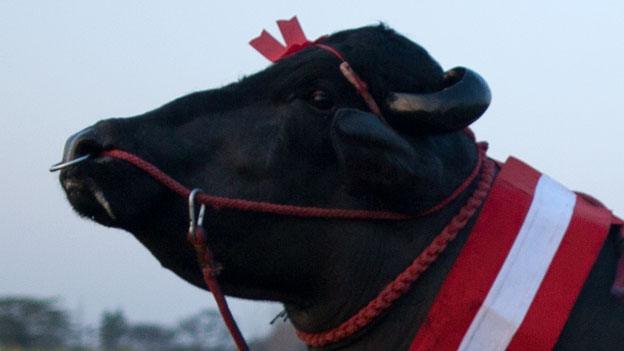India's Maharashtra police bring first beef ban case
- Published
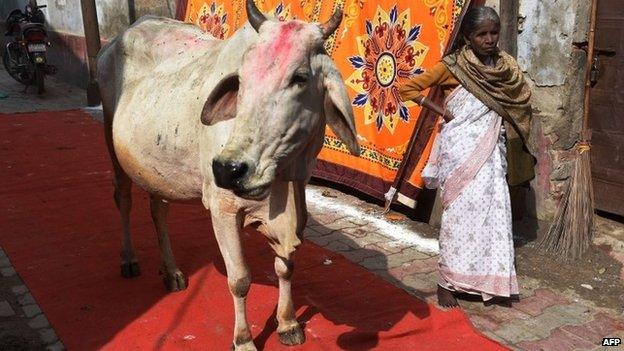
Many Hindus, who comprise 80% of India's 1.2bn population, consider cows holy
Police in India's Maharashtra state have opened a case against three people under a controversial new law which bans the slaughter of cows and sale and consumption of beef.
It is the first case since the law came into effect on 2 March, police said.
Hindus, who comprise 80% of India's 1.2bn population, revere cows and the sale and consumption of beef is banned or restricted in many states.
Anyone found breaking the law faces a fine and up to five years in prison.
"We carried out a raid on Wednesday after a tip-off. The three men ran away when they saw us. We have identified them and police teams are trying to arrest them," Sanjay Sawai, senior police official in Malegaon district, told BBC Hindi.
"We've seized 150kg of meat and the carcass of the animal. We believe it was a calf, but the meat has been sent to a laboratory for testing," he said.
The accused would be charged under the Maharashtra Animal Preservation (Amendment) Act, he added.
The decision of the western state, which includes India's commercial capital and biggest city Mumbai, to ban beef completely has caused much outrage in India.
The Maharashtra beef ban is among the toughest in India - along with cows, it also forbids the killing of bulls and bullocks and even possessing beef, which is now considered as contraband.
Most beef sold in India is actually from water buffaloes which are not considered sacred.
But in Maharashtra, buffalo meat, generally seen to be of inferior quality, comprised only 25% of the market and the ban is felt more keenly there.
The ban has been challenged in court by traders who say tens of thousands of people involved in the trade have lost their livelihoods.
- Published3 March 2015
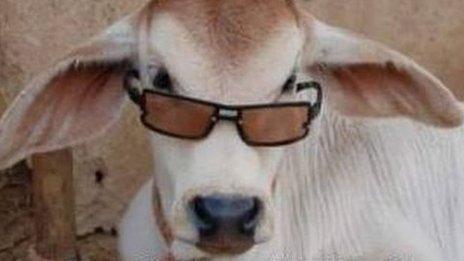
- Published3 March 2015
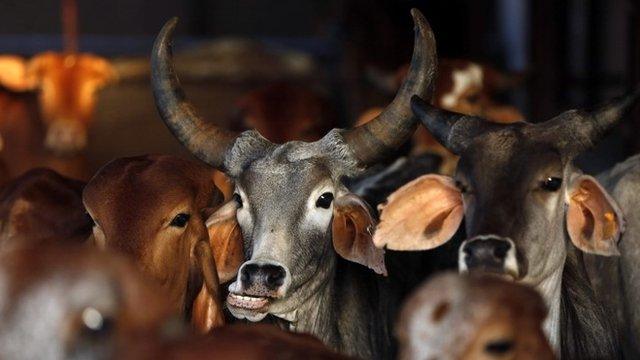
- Published4 May 2014
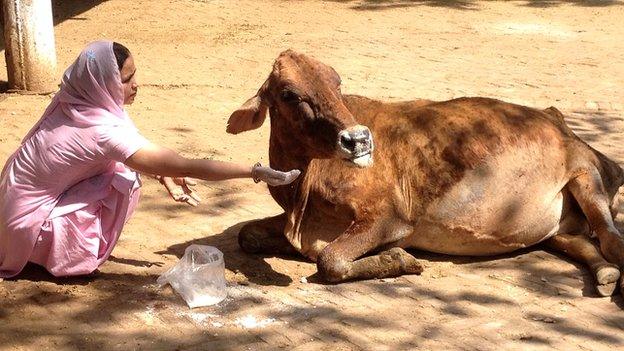
- Published11 February 2015
